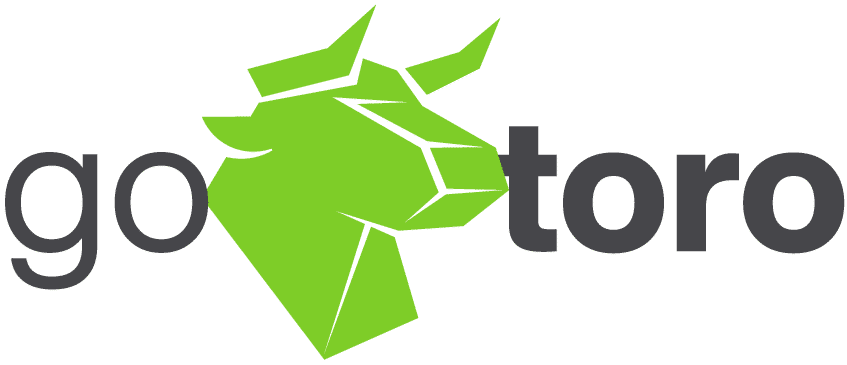GoToro has been assisting the solar industry with its hiring needs because the industry has been shining brighter than ever, with unprecedented growth over the last decade! solar talent, challenges in solar recruitment, solar industry recruitment,
This surge is driven by global efforts to combat climate change, technological advancements, and a significant reduction in the cost of solar installations. As the industry expands, the demand for skilled professionals who can contribute to the development, installation, and maintenance of solar energy systems is skyrocketing. This critical need for talent underscores not just the opportunity for job seekers but also the challenge for employers in the solar sector to find individuals equipped with the right skills and knowledge.
Highlighting the Importance of Strategic Recruitment to Harness Innovation and Growth

Strategic recruitment goes beyond filling vacancies. It’s about building a foundation for sustained innovation and growth within the solar industry. As solar companies strive to push the boundaries of technology and expand their market reach, attracting and retaining top talent becomes a pivotal element of their success. The right talent can drive efficiency, foster innovation, and maintain competitive edges in a fast-evolving industry. Thus, recruitment strategies need to be meticulously planned and executed to ensure that the workforce not only meets the current demands but is also prepared for the future challenges and opportunities that lie ahead.
Outline of the Blog’s Focus on Recruitment Challenges and Best Practices Within the Solar Sector
This blog aims to shine a light on the multifaceted challenges of recruitment in the solar industry. From the scarcity of technical expertise to the nuances of attracting candidates who share the company’s commitment to sustainability, we delve into the intricacies of hiring in this unique sector. We will explore best practices for identifying, attracting, and retaining the talent that will propel the solar industry forward. By examining strategies such as enhancing employer branding, leveraging certifications, and fostering a culture of continuous learning. This blog will provide valuable insights for companies looking to navigate the complex solar recruitment landscape.
The Solar Industry Talent Landscape
Overview of the Current State of the Solar Industry and Its Rapid Growth
The solar industry’s growth trajectory is nothing short of remarkable. With governments worldwide setting ambitious renewable energy targets and consumers increasingly turning to clean energy solutions, the solar sector is poised for continued expansion. This growth is not just about the number of solar panels being installed but also about the advancements in solar technology. Which are making solar energy more efficient, accessible, and cost-effective.
Discussion on the Variety of Roles and the Technical Expertise Required, From Installation to Sales
The solar industry encompasses a wide range of roles, each requiring a unique set of skills and knowledge. Installers, for instance, need a thorough understanding of electrical systems, roofing techniques, and solar panel installation. Their work is critical to the successful deployment of solar projects. On the other hand, sales professionals in the solar industry need a deep comprehension of solar technology to effectively communicate its benefits and tailor solutions to meet customer needs. The diversity of roles highlights the industry’s need for a multifaceted workforce capable of driving its growth from various angles.
The Significance of Certifications and Training in the Industry
Certifications and training play a crucial role in the solar industry, serving as benchmarks for the requisite knowledge and skills. For technical roles like installers, certifications such as the North American Board of Certified Energy Practitioners (NABCEP) certification can be a testament to their expertise and commitment to quality. Similarly, sales professionals benefit from specialized training on solar products and technologies, enabling them to advocate effectively for solar solutions. These credentials not only enhance the professionalism of the workforce but also boost consumer confidence in solar energy systems.
This introduction and overview set the stage for a deeper exploration of the challenges and strategies in solar recruitment, aiming to equip solar companies with the insights needed to build a skilled and dedicated workforce.
Challenges in Solar Recruitment

The expansion of the solar industry brings with it a unique set of challenges in solar recruitment. As companies vie to lead in the green energy revolution, the hunt for skilled professionals has become increasingly competitive.
Technical Expertise
One of the primary hurdles in solar recruitment is finding candidates with the necessary technical skills and knowledge for solar energy systems. The complexity of these systems demands a workforce that is not only proficient in basic technical skills but also possesses a deep understanding of solar technology. This gap in technical expertise can significantly hamper the progress of solar projects.
Certifications and Training
The solar industry places a high value on specific certifications, such as the North American Board of Certified Energy Practitioners (NABCEP) certification for installers. These certifications are critical in ensuring the quality and reliability of solar installations. However, the demand for certified professionals often exceeds supply, creating a bottleneck in solar recruitment for technical positions.
Competitive Job Market
The booming solar industry has led to a highly competitive job market. With companies across the globe seeking to augment their workforce with skilled talent, attracting and securing the best candidates has become a formidable challenge. This competition not only makes recruitment harder but also drives up the cost of hiring.
Retention
Retaining skilled employees in such a competitive landscape is another significant challenge. The allure of higher salaries and better benefits from competitors can lead to high turnover rates, undermining the stability and continuity of projects.
Seasonal Variability
Solar recruitment is also affected by seasonal variability. Demand for installations tends to peak during the spring and summer months, leading to a surge in hiring needs that can be difficult to manage. Conversely, the off-peak seasons may see a lull in recruitment, affecting the consistency of employment opportunities in the industry.
Geographical Challenges
The challenge of solar recruitment varies significantly by region. Rural areas may struggle with a smaller pool of qualified candidates, while urban centers might face intense competition for talent. These geographical disparities can complicate recruitment strategies and necessitate more tailored approaches.
Cultural Fit
In the sustainability-focused solar industry, aligning candidates with the company’s values and culture is paramount. Finding individuals who are not only technically proficient but also share a commitment to environmental responsibility can enhance team cohesion and drive collective success.
Best Practices for Attracting Top Talent

Overcoming the challenges of solar recruitment requires strategic efforts to attract and retain top talent.
Employer Branding
A strong employer brand is essential in making your company stand out to potential candidates. Highlighting your firm’s commitment to innovation, sustainability, and employee development can enhance its attractiveness to skilled professionals in the solar sector.
Effective Job Descriptions
Crafting job descriptions that clearly articulate the unique benefits and opportunities of working in the solar industry can captivate the interest of top talent. Emphasizing career growth possibilities and the impact on sustainability. As well as the chance to be part of a cutting-edge industry are key to attracting candidates.
Leveraging Digital Platforms
Social media and specialized job boards are invaluable tools for reaching potential candidates. These platforms can widen your recruitment net. Further allowing you to connect with a broader audience of professionals interested in solar careers.
Engaging with Educational Institutions
Forming partnerships with educational institutions can provide direct access to emerging talent pools. Internship programs, guest lectures, and collaborative projects can serve as pipelines for fresh talent. Individuals equipped with the latest knowledge and eager to make their mark in the solar industry.
By addressing the challenges of solar recruitment with these best practices, companies can build a robust workforce capable of driving the solar industry forward.
Evaluating and Hiring Solar Industry Professionals
In the competitive landscape of solar recruitment, evaluating and hiring the right professionals is crucial for the sustained growth and innovation of any solar company. Here’s how organizations can optimize their hiring processes:
Tailoring the Interview Process
The interview process in solar recruitment should be meticulously designed to assess not only the technical skills and certifications of candidates but also their cultural fit within the company. Questions should be structured to gauge an applicant’s practical knowledge of solar technologies, their problem-solving abilities, and their adaptability to the fast-evolving solar sector. Understanding a candidate’s alignment with the company’s sustainability values and mission is equally important.
The Role of Practical Assessments
Incorporating practical assessments into the evaluation process can provide invaluable insights into a candidate’s on-the-job capabilities. Simulations of real-world challenges, technical problem-solving exercises, or project-based tasks related to solar technology can help identify individuals with the hands-on skills necessary for success in the solar industry.
Strategies for Making Competitive Offers
To attract top talent in the bustling field of solar recruitment, companies must craft competitive offers that stand out. This entails not only offering attractive salaries but also considering comprehensive benefits packages, opportunities for stock ownership, flexible working conditions, and clear paths for career progression. Emphasizing the long-term career opportunities and the impact of their work on global sustainability can make offers even more appealing to candidates.
Onboarding and Retention Strategies
Securing top talent is just the beginning. Integrating new hires into the solar industry workforce and retaining them are critical components of successful solar recruitment.
Best Practices for Integrating New Hires

A structured onboarding process is essential for new employees to acclimate to the company culture and understand their role in achieving its objectives. This process should include detailed orientations, mentorship programs, and integration into project teams to foster a sense of belonging and purpose from the outset.
Creating Opportunities for Continuous Learning and Career Advancement
The solar industry’s rapid development necessitates continuous learning and adaptability. Companies should invest in ongoing training programs, professional development courses, and certification opportunities to help employees stay abreast of the latest technologies and practices. Promoting from within and providing clear career advancement paths can also enhance job satisfaction and loyalty.
Developing Competitive Compensation Packages
To retain skilled professionals in the solar industry, companies need to develop compensation packages that reflect the value of the employee’s skills and contributions. This includes not only competitive salaries but also benefits such as health insurance, retirement plans, and performance bonuses. Perhaps even sustainability-focused incentives like subsidies for solar home installations or electric vehicles.
By implementing these strategies in solar recruitment, companies can ensure they not only attract but also retain the highly skilled professionals who will drive the future of solar energy.
Navigating Seasonal and Geographical Hiring Challenges
The dynamic nature of the solar industry brings unique challenges to solar recruitment. Notably in managing seasonal demand fluctuations and geographical disparities in talent availability.
Strategies for Flexible Staffing to Accommodate Seasonal Demand
To address the seasonal variability in solar projects, companies can adopt flexible staffing strategies. This could involve hiring contract workers or temporary employees during peak installation periods or developing a core team capable of scaling up with the help of part-time or freelance professionals. This flexibility aligns the workforce with project demands, optimizes resource utilization, and maintains project timelines.
Approaches to Overcome Geographical Hiring Challenges
Geographical challenges in solar recruitment can be mitigated through innovative hiring strategies. Offering remote work options can expand the talent pool beyond local candidates. Allowing companies to tap into a national or even global workforce. For roles that require physical presence, relocation incentives and signing bonuses can be effective in attracting talent to less accessible areas. Additionally, investing in local training programs and partnerships with educational institutions can help develop a skilled workforce within specific regions.
The expansion of the solar industry underscores the critical importance of strategic recruitment. As companies strive to innovate and grow, the ability to attract, hire, and retain top talent becomes increasingly vital. The challenges in solar recruitment, from finding technically skilled professionals to managing seasonal and geographical variations in staffing, require a multifaceted approach. By adopting best practices such as enhancing employer branding, leveraging digital platforms for recruitment, and offering competitive compensation packages, companies can overcome these obstacles.
Encouragement to Adopt These Best Practices for Long-Term Success and Growth
The future of the solar industry hinges on its workforce. Companies that invest in comprehensive recruitment strategies—those that encompass not just hiring but also onboarding, development, and retention—will be well-positioned for long-term success and growth. The role of effective recruitment in driving the solar industry forward cannot be overstated. It is the foundation upon which innovation, sustainability, and competitive advantage are built.
As the solar industry continues to evolve, so too must the strategies for recruiting its workforce. The best practices outlined here serve as a guide for companies seeking to navigate the complexities of solar recruitment. By prioritizing the acquisition of skilled talent and fostering an environment that supports their growth and satisfaction, companies can ensure a bright future for themselves and the industry as a whole.
Interested in taking your solar recruitment strategy to the next level? Request a demo today to discover how our innovative solutions can help you streamline your hiring process, access top talent, and build a workforce that will lead your company into the future of solar energy.


